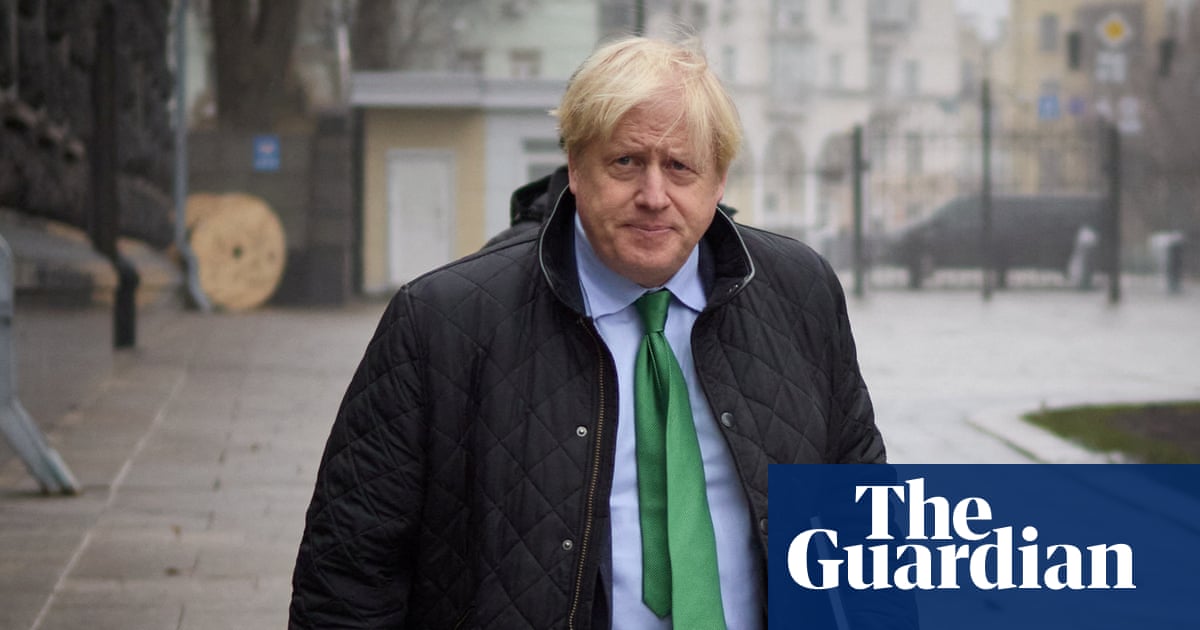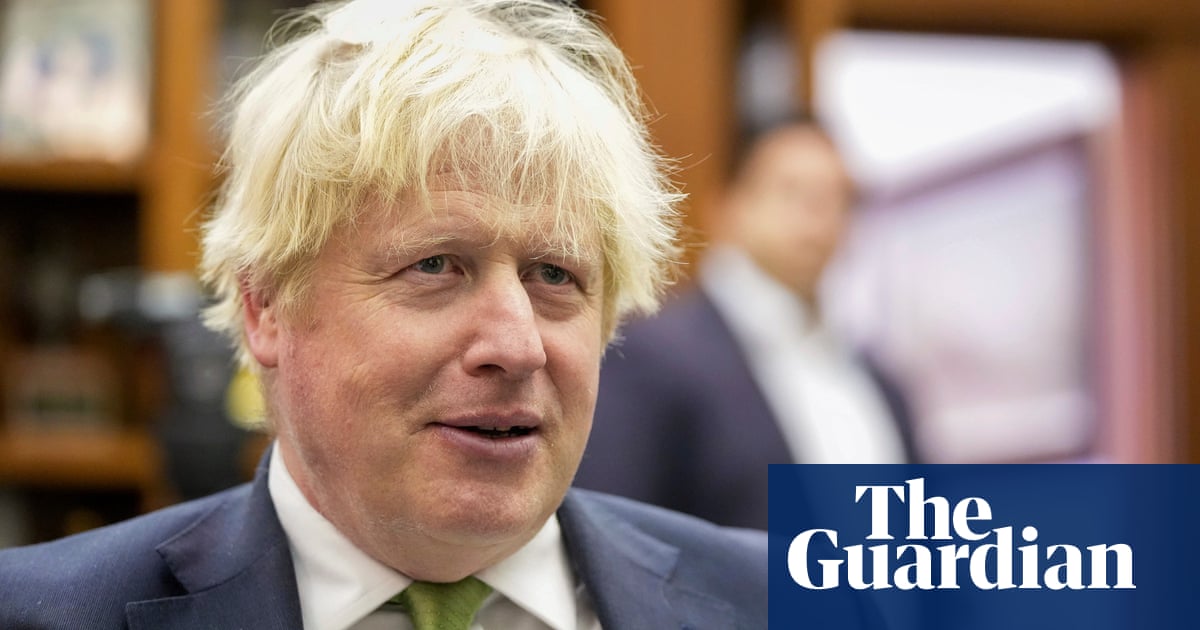
Boris Johnson has contradicted leading scientists and one of his most senior health officials who advised people to cut back on unnecessary socialising in response to Omicron, as he urged people not to cancel their Christmas parties or nativity plays.
The prime minister said the best thing to do to counter the threat of the Covid variant was to get booster jabs, with a massive NHS effort backed by the army to offer all adults one by the end of January.
Asked what he would say to schools scaling back nativity plays and people dropping out of Christmas social events, Johnson said: “We don’t want people to cancel such events. We think that overwhelmingly the best thing for kids is to be in school, as I’ve said many times throughout this pandemic.”
He also stressed that current guidance to wear masks on public transport and in shops was enough at this stage, despite Jenny Harries, the chief executive of the UK Health Security Agency, suggesting people should reduce their social contact as fears grow that existing vaccines will prove less effective against the Omicron variant.
“Of course our behaviours in winter – and particularly around Christmas – we tend to socialise more, so I think all of those will need to be taken into account,” the former deputy chief medical officer for England told BBC Radio 4’s Today programme.
“So I think [the solution is] being careful, not socialising when we don’t particularly need to, and particularly going and getting those booster jabs.”
With 22 cases of Omicron now confirmed, including one Nottingham University student and nine linked to a social event in Scotland, senior scientists suggested it would be wise for people to cut back their social activities.
Some scientists and Labour raised concerns that the government was not going far enough. Prof John Edmunds of the London School of Hygiene & Tropical Medicine and a member of the Scientific Advisory Group for Emergencies (Sage) said: “Jenny Harries is, of course, correct. Reducing our social contacts now will slow the establishment of this new virus in our country. It will also help reduce the spread of the Delta virus which we are still struggling with. If you are intending to socialise or go to the office then the risk can be significantly reduced by taking a lateral flow test beforehand.”
Prof Andrew Hayward, co-director of the UCL Institute of Epidemiology and Health Care, said: “I am concerned that the intensification of mixing at Christmas social events will provide a boost to transmission at just the time when the Omicron variant will probably be picking up speed, potentially leading to an earlier peak in the new year before we have an opportunity to counteract this through boosters. Such a peak could seriously affect the ability of an already struggling NHS to provide adequate care.
“In this context my personal view is that it is reasonable for people to reduce indoor mixing but on current evidence I would not want this to be enforced.”
Others called for more clarity around advice. Michael Kill, chief executive of Night Time Industries Association, said venues were faced with “another poorly conceived communications strategy from government which has and will severely impact businesses”, with Christmas bookings and advance ticket sales already hit.
Ruth Rankine, director of primary care at the NHS Confederation, added: “Health leaders need clear and consistent messages to be given out by the government and its national bodies to the public on exactly what they are expected to do and when, both around vaccinations as well as on how they can keep themselves and those around them safe.”
Wes Streeting, the new shadow health secretary, said he was concerned about Harries’ comments because “she is clearly worried that the government isn’t on track, isn’t doing everything it needs to do”. He called for measures such as requiring pre-departure Covid tests from all travellers arriving in the UK to help “ensure Christmas can carry on as we hope it will”.
Johnson said he was not ruling out a move to “plan B” – an order to work from home and the introduction of vaccine passports – but he said it was not necessary at this point, with data on the effects of Omicron not expected for another two weeks.
The threat of further restrictions and Harries’ comments sparked a backlash among some Conservative MPs, who warned of “mission creep”. Steve Baker, a Tory MP on the Covid Recovery Group of lockdown sceptics, challenged it in the House of Commons, saying it “appears now that employed civil servants are no longer bound to policy” and that it was a “recipe for chaos”.
There was also concern among some Conservatives about the new isolation requirements for suspected contacts of Omicron cases, with 34 voting against the regulations in a vote and 24 against mandatory masks. Steve Brine, a former health minister, said the isolation rule change “bothers me a great deal more” than extending the use of masks, especially because of its impact on schools.
He said: “We’re not just looking at a pingdemic in our economy and in our businesses, we’re looking at a pingdemic that’s going to devastate education again.”
At his press conference in Downing Street, Johnson insisted there would be no return to the “pingdemic” of the summer, when many healthy contacts of those with Covid were required to stay at home. He also insisted that the booster programme and urging the unvaccinated to come forward were the best way of defeating Omicron, with the NHS announcing it would need an army of 10,000 volunteers and 1,500 new sites to help offer 25m vaccines over the next two months.
But despite the prime minister’s encouragement to headteachers not to cancel their nativity plans, some schools are switching to virtual performances because of concerns about infection risks and the challenges presented by the new variant.
Jamie Barry, headteacher of Yew Tree primary school in Walsall in the West Midlands, had hoped to put on a live nativity play this year with an audience, but it will now be a virtual performance amid concerns about the risk of staff and pupils having to isolate because of the new variant.
“Until the new variant there was no risk of isolation for close contact,” said Barry. “Now if someone tests positive with the new variant, individuals have to isolate regardless of age or vaccination status. I can’t risk losing half my staff or children missing the final week of term. Boris wants schools kept open but if staff have to isolate, and there’s a national shortage of supply [teachers] we don’t have much choice.”
He said the 12 schools in his cluster have changed their plans.












